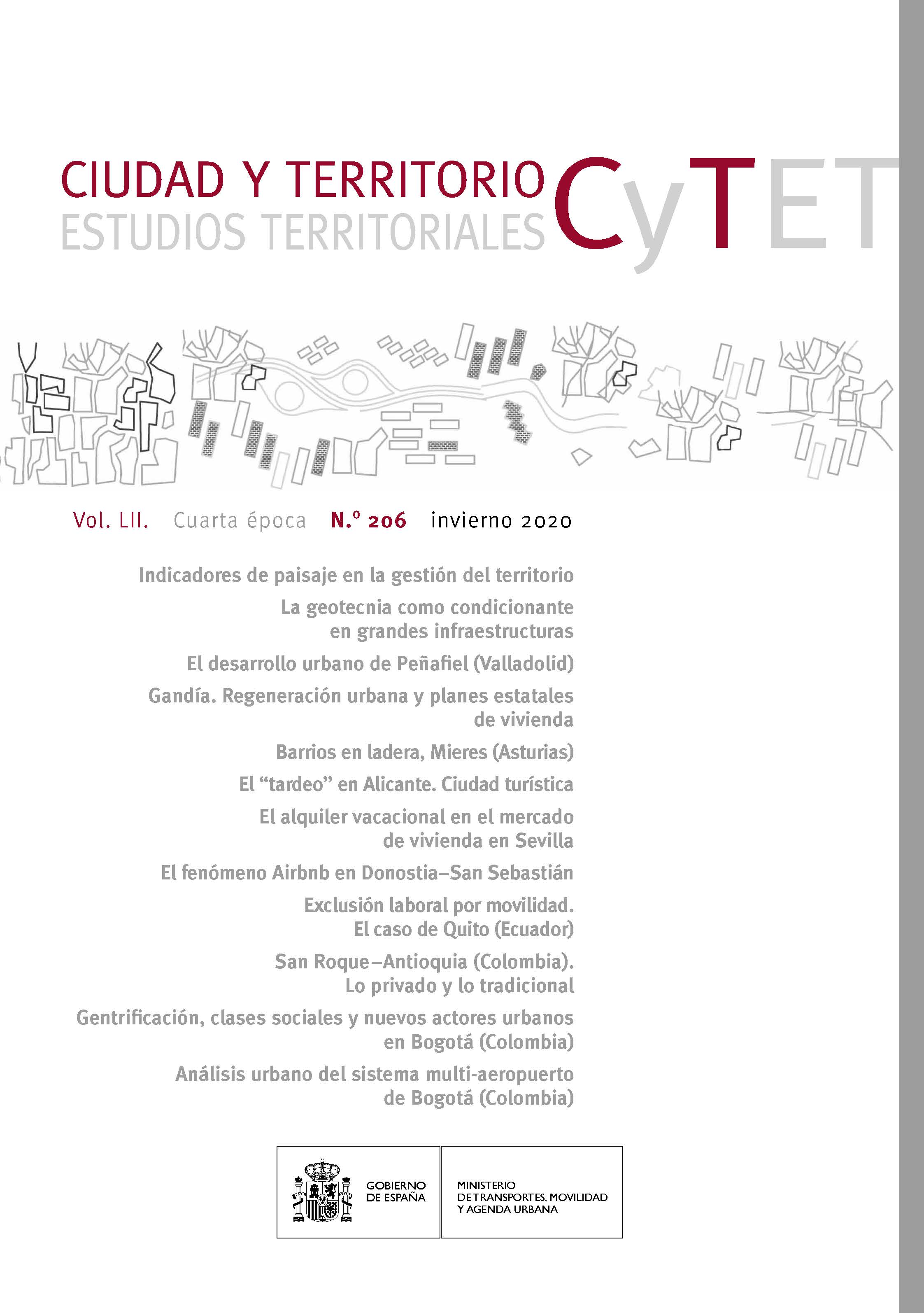Airbnb in Donostia-San Sebastián: a sharing economy model?
DOI:
https://doi.org/10.37230/CyTET.2020.206.08Keywords:
Airbnb, Tourist accommodation, Touristification, Sharing economy, Donostia-San SebastiánAbstract
Airbnb has provided a disruptive innovation for the hotel sector and is promoting an increase in tourist arrivals in some cities. Donostia/San Sebastian is not unaware of this phenomenon and, thus, because of the proliferation of tourist accommodations in the last years, a variety of social and economic actors are drawing attention to this fact and demanding a wider control and regulation of this kind of services. Its defenders frame this phenomenon within the new model of sharing economy. However, based on statistical and geospatial analysis, our research suggests that this new type of platform would not comply with the premises of sharing economy, but rather a highly professionalized offer, particularly affecting central areas of the city, which could contribute to promoting a process of tourist gentrification.
Downloads
Published
How to Cite
Issue
Section
License
Copyright (c) 2020 Itziar Aguado-Moralejo, Josu del Campo-Echeverría

This work is licensed under a Creative Commons Attribution-NonCommercial 4.0 International License.
Considering the provisions of the current legislation on Intellectual Property, and in accordance with them, all authors publishing in CyTET give -in a non-exclusive way and without time limit- to the Ministry of Transport, Mobility and Urban Agenda the rights to disseminate, reproduce, communicate and distribute in any current or future format, on paper or electronic, the original or derived version of their work under a Creative Commons Attribution-NonCommercial-NoDerivative 4.0 license International (CC BY-NC-ND 4.0), as well as to include or assign to third parties the inclusion of its content in national and international indexes, repositories and databases, with reference and recognition in any case of its authorship.
In addition, when sending the work, the author(s) declares that it is an original work in which the sources that have been used are recognized, committing to respect the scientific evidence, to no longer modify the original data and to verify or refute its hypothesis. Author(s) also declare that the essential content of the work has not been previously published nor will it be published in any other publication while it is under evaluation by CyTET; and that it has not been simultaneously sent to another journal.
Authors must sign a Transfer of Rights Form, which will be sent to them from the CyTET Secretariat once the article is accepted for publication.
With the aim of promoting the dissemination of knowledge, CyTET joins the Open Journal Access (OA) movement and delivers all of its content to various national and international indexes, repositories and databases under this protocol; therefore, the submission of a work to be published in the journal presupposes the explicit acceptance by the author of this distribution method.
Authors are encouraged to reproduce and host their work published in CyTET in institutional repositories, web pages, etc. with the intention of contributing to the improvement of the transfer of knowledge and the citation of said works.








 Enlace a CyTET en Linkedin
Enlace a CyTET en Linkedin